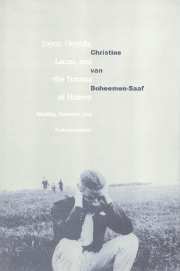Book contents
- Frontmatter
- Contents
- Acknowledgments
- List of abbreviations
- Chapter 1 The stolen birthright: the mimesis of original loss
- Chapter 2 Representation in a postcolonial symbolic
- Chapter 3 The language of the outlaw
- Chapter 4 The primitive scene of representation: writing gender
- Chapter 5 Materiality in Derrida, Lacan, and Joyce's embodied text
- Conclusion: Joyce's anamorphic mirror
- Bibliography
- Index
Chapter 1 - The stolen birthright: the mimesis of original loss
Published online by Cambridge University Press: 22 September 2009
- Frontmatter
- Contents
- Acknowledgments
- List of abbreviations
- Chapter 1 The stolen birthright: the mimesis of original loss
- Chapter 2 Representation in a postcolonial symbolic
- Chapter 3 The language of the outlaw
- Chapter 4 The primitive scene of representation: writing gender
- Chapter 5 Materiality in Derrida, Lacan, and Joyce's embodied text
- Conclusion: Joyce's anamorphic mirror
- Bibliography
- Index
Summary
Literature bears testimony not just to duplicate or to record events, but to make history available to the imaginative act whose historical unavailability has prompted, and made possible, a holocaust.
Shoshana Felman and Dori Laub, TestimonyThis book argues the cultural-historical importance of James Joyce's Irish modernity. His projection of a traumatized discursivity encapsulating the life-in-death of Irish experience, his syncretic manner of representation, his paradoxical approach to Irish nationalism, his complex attitude to language and cultural memory anticipate insights which we are only beginning to grasp at the end of the century. Joyce, an Irish Catholic born in 1882, grappled with the realities of colonial experience and the hegemony of the English language; and this struggle entailed an engagement with the evaporation of the presence of the material, and the devaluation or dissolution of art and truth — problems besetting contemporary culture. Not surprisingly, Joyce's writing has had an informative impact on contemporary theory: Joyce's presence in the texts of Derrida, Lacan, and Slavoj Žižek is pronounced; and the simplest way of describing this book is as a study in the informative presence of what Freud called the “death instinct,” and what I see as the peculiarly traumatizing and uncanny effect of Irish historical experience in the rivalry for truth of three disciplines: deconstructive philosophy, Lacanian psychoanalysis, and Joycean Irish modernist literature.
- Type
- Chapter
- Information
- Joyce, Derrida, Lacan and the Trauma of HistoryReading, Narrative, and Postcolonialism, pp. 1 - 30Publisher: Cambridge University PressPrint publication year: 1999



